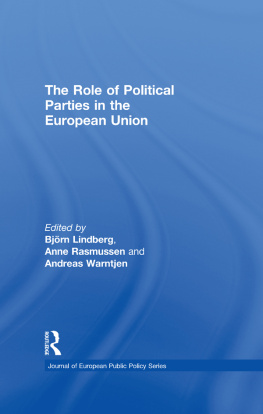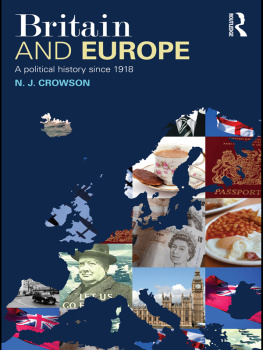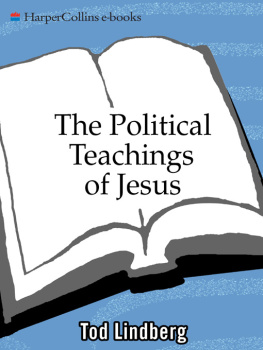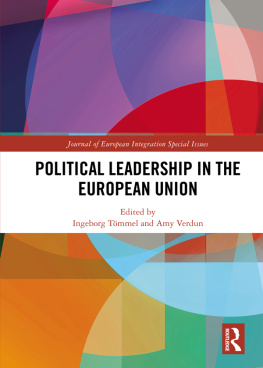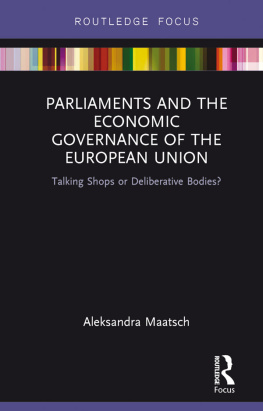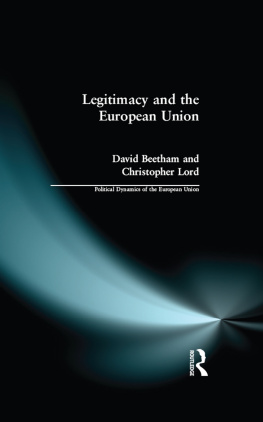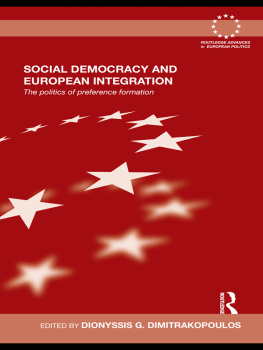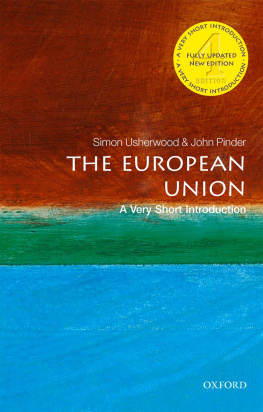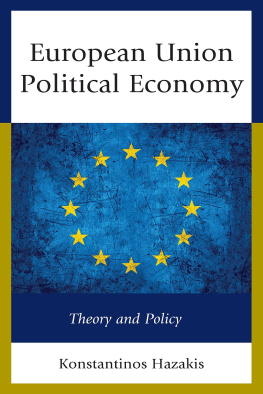Bjorn Lindberg - The Role of Political Parties in the European Union
Here you can read online Bjorn Lindberg - The Role of Political Parties in the European Union full text of the book (entire story) in english for free. Download pdf and epub, get meaning, cover and reviews about this ebook. year: 2009, publisher: Routledge, genre: Politics. Description of the work, (preface) as well as reviews are available. Best literature library LitArk.com created for fans of good reading and offers a wide selection of genres:
Romance novel
Science fiction
Adventure
Detective
Science
History
Home and family
Prose
Art
Politics
Computer
Non-fiction
Religion
Business
Children
Humor
Choose a favorite category and find really read worthwhile books. Enjoy immersion in the world of imagination, feel the emotions of the characters or learn something new for yourself, make an fascinating discovery.
- Book:The Role of Political Parties in the European Union
- Author:
- Publisher:Routledge
- Genre:
- Year:2009
- Rating:3 / 5
- Favourites:Add to favourites
- Your mark:
- 60
- 1
- 2
- 3
- 4
- 5
The Role of Political Parties in the European Union: summary, description and annotation
We offer to read an annotation, description, summary or preface (depends on what the author of the book "The Role of Political Parties in the European Union" wrote himself). If you haven't found the necessary information about the book — write in the comments, we will try to find it.
The Role of Political Parties in the European Union — read online for free the complete book (whole text) full work
Below is the text of the book, divided by pages. System saving the place of the last page read, allows you to conveniently read the book "The Role of Political Parties in the European Union" online for free, without having to search again every time where you left off. Put a bookmark, and you can go to the page where you finished reading at any time.
Font size:
Interval:
Bookmark:
Edited by Alexander H. Trechsel
Edited by Tanja A. Brzel
Edited by Christoph Knill
Edited by Helene Sjursen
Edited by John Peterson and Alasdair R. Young
Edited by Frank R. Baumgartner, Christoffer Green-Pedersen and Bryan D. Jones
Edited by Berthold Rittberger and Frank Schimmelfenig
Edited by David Coen
Edited by Susanne K. Schmidt
Edited by Emiliano Grossman
Edited by Tim Bale
Edited by Michael W. Bauer
Postcommunist Europe after EU enlargement
Edited by Rachel A. Epstein and Ulrich Sedelmeier
Edited by Bjrn Lindberg, Anne Rasmussen and Andreas Warntjen
European Union
Bjrn Lindberg, Anne Rasmussen and
Andreas Warntjen

by Routledge
2 Park Square, Milton Park, Abingdon, Oxon, OX14 4RN
by Routledge
270 Madison Avenue, New York, NY 10016
Printed and bound in Great Britain by MPG Books Group, UK
A catalogue record for this book is available from the British Library
ISBN13: 978-0-415-49928-6
Bjrn Lindberg, Anne Rasmussen and Andreas Warntjen
Johan Hellstrm
Arndt Wonka
Anne Rasmussen
Bjrn Lindberg
Sara Hagemann and Bjorn Hoyland
Jonas Tallberg and Karl Magnus Johansson
Andreas Warntjen, Simon Hix and Christophe Crombez
Simon Hix
Font size:
Interval:
Bookmark:
Similar books «The Role of Political Parties in the European Union»
Look at similar books to The Role of Political Parties in the European Union. We have selected literature similar in name and meaning in the hope of providing readers with more options to find new, interesting, not yet read works.
Discussion, reviews of the book The Role of Political Parties in the European Union and just readers' own opinions. Leave your comments, write what you think about the work, its meaning or the main characters. Specify what exactly you liked and what you didn't like, and why you think so.

